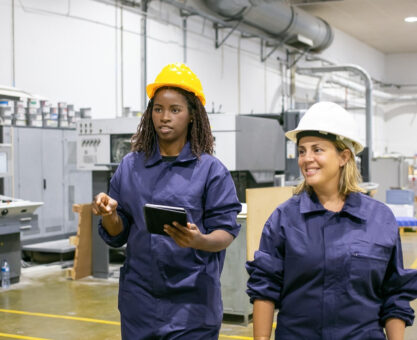Conceptually, the main difference between providing “good” customer service and delivering “great” customer service is that, in the former, you are probably only barely keeping your customers satisfied; while in the latter, you are not only keeping them satisfied – you are also keeping them loyal! This is a very important distinction – and one that many services providers do not always “get”.
For example, let’s say that, historically, your company – and you, as one of its personal “ambassadors” – have been working very hard to keep your customers happy.
[quote float=”left”]While you may think that the sum of these activities, in and of itself, represents “superior” customer service on behalf of you and the company, some of your customers may think otherwise[/quote] You have striven to respond to all of their calls in a timely basis; you have arrived at their site within the contracted time in nearly all cases; you have carried the right parts with you to the service call (or have been able to obtain them as quickly as possible once the need has been identified); and you have followed up with a courtesy call whenever there has been time (and even when there has not).
While you may think that the sum of these activities, in and of itself, represents “superior” customer service on behalf of you and the company, some of your customers may think otherwise.
They are more likely to feel that all of these services are to be expected from their services providers – all of the time! In fact, you probably have more customers than not who think these activities constitute nothing more than “average” customer service and support, and not “great” support – and guess what? They might be right!
The companies that are generally acknowledged to be providers of “great”, rather than merely “good”, service are those that typically go the “extra mile” in the way they treat their customers.
This may include doing simple things like calling with an Estimated Time of Arrival (i.e., ETA) when they are approaching the limits of their normal on-site response times, or following-up after a service call to explain why an equipment failure may have occurred in the first place, and how to possibly avoid it from happening again in the future.
[quote float=”right”]The companies that are generally acknowledged to be providers of “great”, rather than merely “good”, customer service are those that typically go the “extra mile” in the way they treat their customers.[/quote] Thus, it may be that the only perceived difference between “good” and “great” customer service on the customer’s part is the way in which their service providers regularly communicate with them!
It is important to keep the customer “in the loop” at all times. If they are expecting you to arrive on-site to perform a repair, they also expect to know approximately when you will actually get there. If there is a problem with your arriving as scheduled, they’ll want to know as soon as possible when you will get there – they will not want any surprises!
It all becomes a matter of “ownership”; if the customer has to call you to find out where you are, when you’re going to be arriving on-site, or how long you think the machine will be down, the customer “owns” the service call.
However, if you can call the customer in advance with an ETA and, at the same time, provide him or her with some accompanying information, you “own” the call. And if you “own” the call, you also “own” the power to keep the customer informed, in line, and, ultimately, satisfied.
Service providers that merely offer “good” customer service are probably doing virtually all of the same things that those providing “great” customer service are doing. However, the single most important thing that distinguishes the “great” providers from the “good” providers, is that they also communicate better with their customers.
When the customer is happy because of you, they are more likely to stay happy with you.















